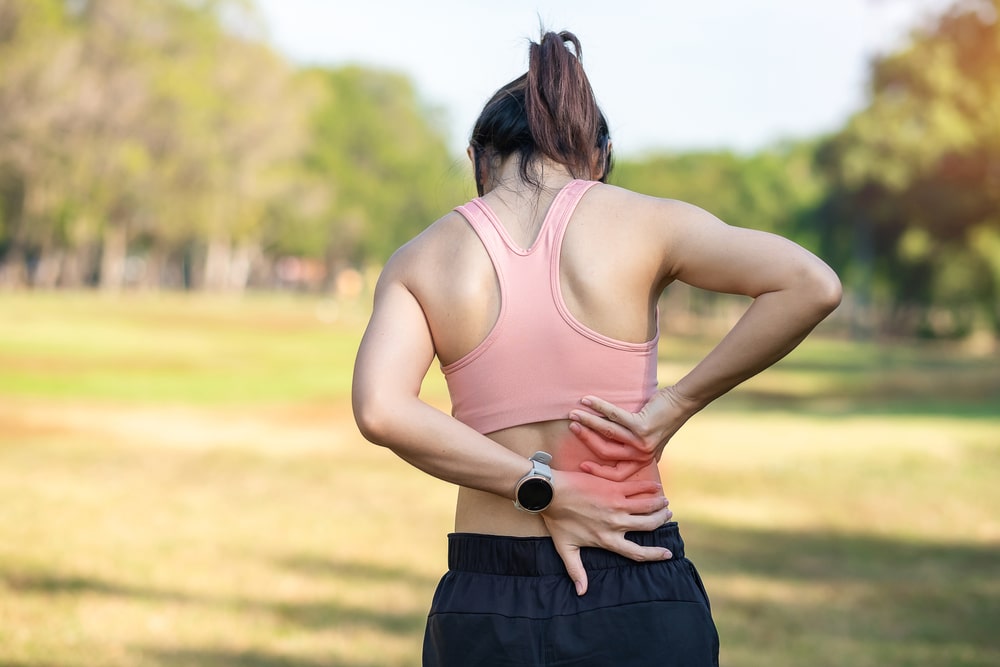Back pain
Back pain is among the most common medical complaints, and has many causes including muscle strain, slipped disc, spinal stenosis, arthritis and spasm. Most episodes resolve within a few weeks by simply avoiding strain to the spine. Ice, heat, and medications can also help. If these basic steps do not work, then it may be time to see a doctor.
There are also a few warning signs that indicate a back problem needs immediate evaluation:
- Back pain persists beyond a few days
- Back pain awakens you at night
- Difficulty controlling your bowels or bladder
- Fever, chills, sweats, or other signs of infection
Acute back pain (short-term back pain)
Acute back pain is typically a very sharp pain or a dull ache, usually felt deep in the lower part of the back, and can be more severe in one area, such as the centre, right or left side. Sometimes, acute back pain can be caused by injury or trauma to the back, but often has no known cause. Even when it is severe, acute back pain will typically improve or completely recover within 6 to 8 weeks. A doctor can assess the severity and cause of the acute back pain to determine what kind of treatment you require.
Chronic back pain (long-term back pain)
Chronic back pain is described as deep, aching, dull or burning pain in one area of the back or travelling down the legs. Patients may feel numbness, tingling, burning, or a pins-and-needles type sensation in the legs. Regular daily activities may prove difficult or impossible. Chronic back pain tends to last a long time, and is not relieved by standard medical treatment (ice, heat, medications). It may result from a previous injury, or from an ongoing problem, such as nerve damage or arthritis.
Radiating pain
Radiating pain, (known as radiculopathy or radicular pain) involves pain that ‘radiates’ along the sciatic nerve – down the back of the thigh and calf into the foot. A radiculopathy can be caused by vertebrae compression, inflammation and/or injury to a spinal nerve root in the low back. The most common symptom of radicular pain is sciatica. Radicular pain can be accompanied by numbness and tingling, muscle weakness and loss of specific reflexes.
Numbness and weakness
Numbness is felt when nerve impulses do not travel properly from the skin to the brain. A patient with back problems may have numbness in the spine, as well as other body parts, especially the legs and feet. This always indicates some kind of nerve damage in the peripheral nervous system or the central nervous system (the spine or the brain), and deserves prompt medical attention. Common spinal causes of numbness include a herniated disc, stenosis (constriction in the spinal region), Multiple Sclerosis and stroke.
Weakness happens when signals do not travel properly from the brain to the muscles or from problems in the muscles themselves. Weakness related to low back pain may have several causes, including inactivity, myopathy, spinal cord injury, stroke and osteoporosis/osteoarthritis. Medical assessment can help diagnose and treat these medical problems
Stiffness and tightness
Stiffness and tightness in the back, neck, arms and legs is most often due to changes in the muscles. More than 80% of neck and back problems are a result of tight, achy muscles brought on by years of bad posture. Additionally, joint stiffness and pain, which sometimes presents itself as back pain, could indicate a higher risk of degenerative osteoarthritis. Poor posture and a sedentary lifestyle have shown to increase the risk of the condition in later years. Studies have shown that there are ways patients can help prevent this.




